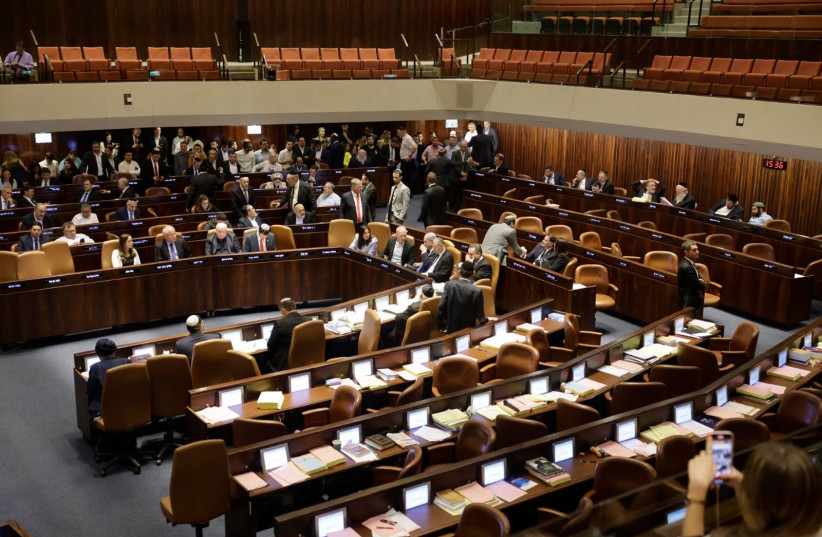NGOs prepare High Court petitions against reasonableness
The Movement for Quality Government in Israel (MQG) and other NGOs have prepared petitions to the High Court of Justice in response to the potential passing of the judicial reform reasonableness standard bill on Monday.
Dr. Eliad Shraga, head of MQG, told The Jerusalem Post at the NGO’s tent in front of the High Court building that they already had a petition ready “if the legislation will pass the third reading.”
“We hope that the High Court will issue a temporary injunction,” said Shraga.
Since the reasonableness bill is an amendment to Basic Law: The Judiciary, Shraga explained that a hearing on the petition would be unprecedented. If the petition is accepted, it would be the first time the court heard arguments to abolish a matter of a Basic Law.
Shraga said that the court would need to consider doctrines such as abuse of constitutional authority and legislation of an unconstitutional amendment to the constitution. Israel lacks a formal written constitution but has quasi-constitutional basic laws.
 Knesset votes on the reasonableness standard bill. (credit: MARC ISRAEL SELLEM)
Knesset votes on the reasonableness standard bill. (credit: MARC ISRAEL SELLEM)If struck down by the court, the situation could create a constitutional crisis.
Petition from the Association for Civil Rights in Israel
The Association for Civil Rights in Israel filed a preliminary petition on Monday, arguing that the Knesset abused its constitutional authority. It further argued against the wording of the text and its violation of constitutional norms. The separation of powers would be damaged because of the concentration of power in the hands of the government.
ACRI asked the court to consider the expected damage to the rule of law and separation of powers. The cancellation of the standard would allow the government to freely appoint or dismiss officials without reason. These officials are key to preventing the violation of human rights and overseeing the requirement that authorities act in a reasonable manner.
Replacements could be appointed even if they had proven themselves violators of rights or corrupt. ACRI also argued that reasonableness served as a defense against corruption in administrative decisions
On Sunday the Israel Bar Association National Council announced that it would be backing the Thursday announcement of its chairman Amit Becher, that the Bar would be filing a petition against the bill.





Comments are closed.